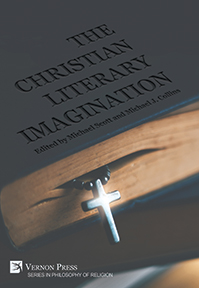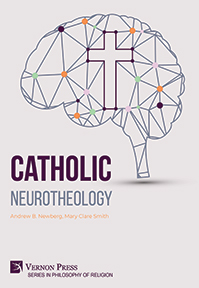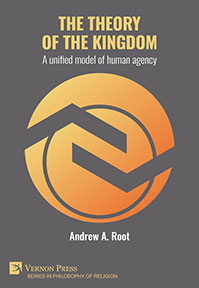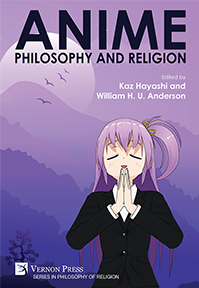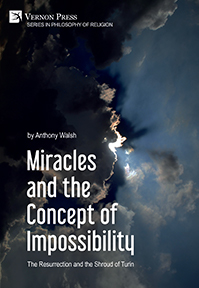Search
Browse
by Publication status
by Subject
Anthropology (26) Art (171) Business and Finance (38) Cognitive Science and Psychology (63) Communication and Journalism (51) Economics (116) Education (71) History (168) Human Geography (23) Interdisciplinary (43) Language and Linguistics (178) Law (16) Music Studies (18) Philosophy (222) Political Science and International Relations (127) Sociology (402) Statistics and Quantitative Methods (21)by Series
Series in Literary Studies (62) Series in Philosophy (57) Series in Education (49) Series in Sociology (42) Series in World History (31) Series in Politics (30) Bridging Languages and Scholarship (25) Series in Language and Linguistics (25) Cognitive Science and Psychology (20) Series in Philosophy of Religion (20) Series in American History (19) Series in Art (19) Critical Perspectives on Social Science (16) Series in Cinema and Culture (16) Curating and Interpreting Culture (15) Series on the History of Art (14) Series in Anthropology (13) Series in Critical Media Studies (13) Economics (13) Series in Business and Finance (12) Series in Music (12) Series in Performing Arts (9) Philosophy of Personalism (8) Series in Communication (8) Series in Law (8) Series in Economic Methodology (7) Series on Climate Change and Society (7) Classics in Economics (6) Series in Economic Development (6) Women's Studies (6) Philosophy of Forgiveness (5) Series in Built Environment (5) Series in Economic History (5) Series in Philosophy of Science (4) Series in Social Equality and Justice (4) Series on the History of Science (4) Serie en Sociología (3) Series in Contemporary History (3) Series in Creative Writing Studies (3) Series in Design (3) The Interdisciplinary Built Environment (3) Series in Heritage Studies (2) Series in Innovation Studies (2) Serie en Ciencias Políticas (1) Serie en Comunicación y Medios (1) Serie en Entorno Construido (1) Serie en Estudios Culturales (1) Serie En Estudios Literarios (1) Serie en Filosofía (1) Serie en Música (1) Series in Classical Studies (1) Series in Economics of Technological Change (1) Series in Philosophy of Race (1) Series in Urban Studies (1)by Language
English Spanishby Author
Browsing with filters
The Christian Literary Imagination
Edited by
Michael Scott, Blackfriars Hall, Oxford
and Michael J. Collins, Georgetown University
Availability: Forthcoming
$113 £91 €106
What is the Christian literary imagination? That question was put to the writers who have contributed to this collection of essays. They were asked, in answering it, to choose and write about a work of literature that seemed to them to illustrate one of the varied ways in which the Christian imagination sees the world, to define by example the meaning of the term. A variety of beliefs (or indeed unbeliefs) are expressed by the contributors and authors they selected to discuss. But what the essays have in common is an inquiry into the nature of belief and the means by which the reader’s imagination can itself be stirred through the work of the author under discussion. The book is structured chronologically, with essays on literature ranging from Anglo-Saxon England to 21st-Century America, but the contributors show a freedom of movement and reference across the centuries in their essays, sometimes deliberately juxtaposing the historical with the contemporary. What emerges from the collection is a shared inquiry into the enduring Christian vision of God’s engagement with the world.
Catholic Neurotheology
Andrew Newberg, Thomas Jefferson University
and Mary Clare Smith, Sisters of Notre Dame
Availability: Available 4 weeks
400pp. ¦ $86 £69 €81
The topic of “neurotheology” has garnered increasing attention in the academic, religious, scientific, and popular worlds. It is the field of study that explores the intersection between the brain and religious and spiritual phenomena. However, there have been no extensive attempts at exploring specifically how Catholic religious thought and experience may intersect with neurotheology. The purpose of 'Catholic Neurotheology' is to fully engage this groundbreaking area. Topics are related to a neurotheological approach to the foundational Catholic beliefs derived from Scripture and Tradition, an exploration of the various elements of Catholicism and of Catholic rituals and practices, and a review of Catholic spiritualities and mysticism. Specific Catholic scholars are considered in terms of the relationships among their ideas/teachings and different brain processes. 'Catholic Neurotheology' engages these topics in an easy-to-read style and incorporates scientific, religious, philosophical, and theological aspects of the emerging field of neurotheology. By reviewing the concepts in a stepwise, simple, yet thorough discussion, readers regardless of their background will be able to understand the complexities and breadth of neurotheology from a Catholic perspective. More broadly, issues include a review of the neurosciences and neuroscientific techniques; religious and spiritual experiences; theological development and analysis; liturgy and ritual; philosophy, epistemology, and ethics; and social implications, all from a Catholic perspective.
The theory of the kingdom: A unified model of human agency
October 2023 / ISBN: 978-1-64889-757-3Availability: In stock
310pp. ¦ $79 £63 €74
This original monograph presents a comprehensive theory regarding the economy of the kingdom of God. The theory and associated model will help individuals make better choices. The research integrates fundamentals of the temporal real economy, and the permanent economy of the kingdom of God, to present a unified model of human agency. According to the model, effective agents are salt and light in the real economy, arresting corruption and revealing the truth. Effective agency produces life, peace, and growth. Individual and organizational practices that arrest corruption and reveal truth can resolve longstanding economic grievances. The list of spiritual credence goods is extensive and includes commonly known virtues such as humility, patience, and hope. Spiritual goods are allocated based on the owner-agent relationship. The quantity of goods the owner supplies is in proportion to an individual’s sacrificial offering of time and money. Spiritual goods are stored as heart capital. In a process analogous to the real economy, heart labor applied to heart capital produces desirable outputs. The owner relates to his agents through a heart-inscribed behavioral contract. The owner generally intervenes in the real economy by communicating with agents rather than by restricting choice. Prior studies across economics, finance, and sociology prove the efficiency of behavioral contracts and communication over restricted choice. Herein researchers will find new testable propositions, and practitioners will find new ideas and practices to live better, more consequential lives. Examples of practical applications include methods of resolving group-level bias and understanding the purpose of life’s difficulties.
Anime, Philosophy and Religion
Edited by
Kaz Hayashi, Bethel University
and William H. U. Anderson, Concordia University of Edmonton in Alberta
Availability: In stock
362pp. ¦ $96 £81 €89
Anime is exploding on the worldwide stage! Anime has been a staple in Japan for decades, strongly connected to manga. So why has anime become a worldwide sensation? A cursory explanation is the explosion of online streaming services specializing in anime, like Funimation and Crunchyroll. Even more general streaming services like Netflix and Amazon have gotten in on the game. Anime is exotic to Western eyes and culture. That is one of the reasons anime has gained worldwide popularity. This strange aesthetic draws the audience in only to find it is deeper and more sophisticated than its surface appearance. Japan is an honor and shame culture. Anime provides a platform to discuss “universal” problems facing human beings. It does so in an amazing variety of ways and subgenres, and often with a sense of humor. The themes, characters, stories, plotlines, and development are often complex. This makes anime a deep well of philosophical, metaphysical, and religious ideas for analysis. International scholars are represented in this book. There is a diversity of perspectives on a diversity of anime, themes, content, and analysis. It hopes to delve deeper into the complex world of anime and demonstrate why it deserves the respect of scholars and the public alike.
Miracles and the Concept of Impossibility: The Resurrection and the Shroud of Turin
Anthony Walsh, Boise State University
Availability: In stock
122pp. ¦ $50 £39 €46
'Miracles and the Concept of Impossibility' takes a fresh look at the miracle of the resurrection of Jesus. A miracle is inexplicable by the methods of science and thus deemed impossible. I examine the concept of impossibility with primary reference to David Hume’s notion that there is a boundary of probability beyond which the improbable becomes the impossible, calculated at 10150. Physicists have declared that the universe is inevitable and, at the same time, impossible. Its inevitability is obvious, but the mind-boggling improbability that a biocentric universe exists vastly exceeds the probability boundary. If a miracle is defined as an impossibility, the universe is a miracle. The origin of life is just as miraculously impossible because the probability of dead organic molecules evolving into the organic molecules of life is even less than it is for the existence of the universe. This book also looks at what the Resurrection means in terms of the atonement and the concepts of hell and universal salvation. This is followed by an examination of the evidence for the Resurrection and historical and archaeological reasons for trusting the New Testament. Secular explanations of the Resurrection are examined and pitted against the Christian account in terms of their explanatory scope and power. The last two chapters look at the “silent witness” to the resurrection, the Shroud of Turin bearing the image of a terribly tortured and crucified man. For 125 years, scientists have been unable to discover how the image was imprinted on the cloth; thus, I conclude that it is the “silent witness” to the Resurrection—the authentic Shroud of Jesus Christ.

